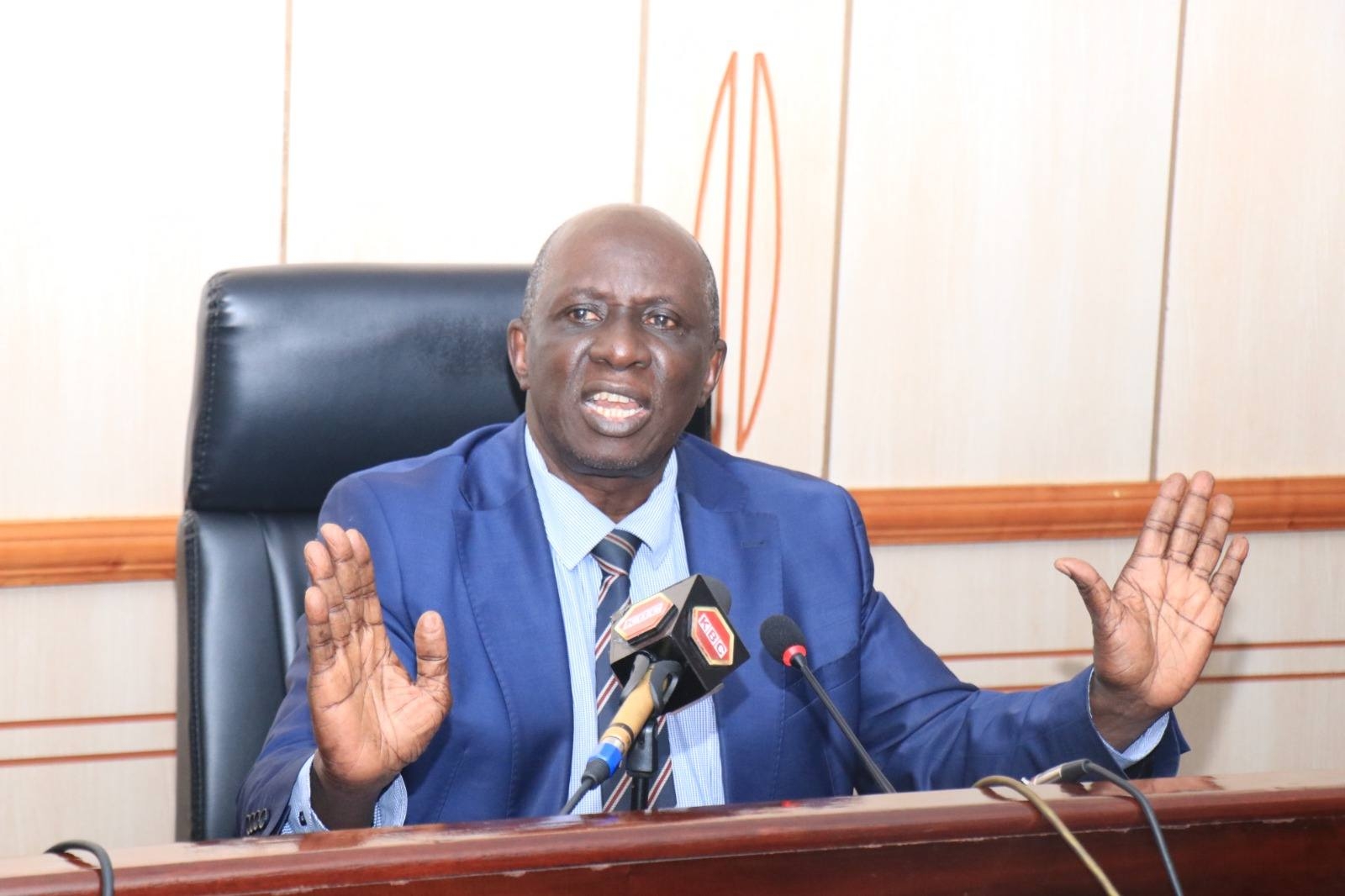About 90 per cent of residents of Owino Uhuru tested positive for lead poisoning in a sample of 800, a lobby has said.
Centre for Justice Governance and Environmental Action director Phyllis Omido said that more than 300 children and 50 adults have died due to the effects of lead since 2010.
Omido said currently they have more than 60 children who are in urgent need of medical attention because of the lead poison in the area.
“If we do not attend to these children urgently, we might lose them. We have more than 20 adults who need urgent kidney dialysis, but they do not have money for medication,” she said.
On Tuesday, the residents paralysed transport along the busy Mombasa-Nairobi highway at Banglaa area at Export Processing Zone Authority’s offices to demand for their compensation awarded by court in 2020.
On July 16, 2020, the Environment and Lands courts awarded Sh1.3 billion damages to 3,000 residents of Owino Uhuru slum who had filed a class action suit over lead poisoning.
The court also ordered the government to clean up the slum within four months, failure to which a further Sh700 million was to be paid.
The community was awarded the payout after a successful case filed in 2016 seeking compensation for death, sickness and damages caused by emissions from a lead smelting factory: EPZ Ltd- Metal Refinery factory.
The judgment meant that two Cabinet Secretaries for Environment and Health, the National Environment Management Authority, EPZ Ltd- Metal Refinery factory, the Export Processing Zone Authority and Penguin Paper and Book Company had 90 days to pay the award.
EPZA was supposed to pay Sh200 million, Nema Sh800 million, Penguin Paper and Book Company Sh1 million, the lead factory Sh3 million, according to Centre for Justice Governance and Environmental Action.
During the hearing of the petition, the Attorney General, Ministry of Environment, Ministry of Health, Nema, EPZA, Metal Refinery (EPZ) Ltd, Penguin Paper and Book Company had been listed among the respondents.
In their submission, Nema, Health and Environment ministries, EPZA, Metal Refinery Ltd and the Penguin Paper and Book Company had opposed the compensation being asked for by the community.
The AG, Health and Environment ministries argued that the damages suffered were personal, therefore every person ought to have proved their case.
However, the judge said from the prayers, it would amount to duplicity of suits if each of the petitioners filed their separate petitions seeking similar orders.
“As residents of Owino-Uhuru, which was the area affected, I find nothing wrong in the suit having been brought for singular and communal purposes/capacities,” the judge said.
Nema said the Owino Uhuru area is zoned as an industrial area and there are multiple sources of lead pollution and it was possible no one source of the pollution is more likely to have caused the harm.
EPZA, which was asked to pay Sh200 million to the residents, argued during the hearing that the matter should be dismissed because the petitioner had failed to prove the cost of treatment.
“On proposed compensation, the same is is not payable to the petitioners because their petition was not backed by any sufficient proof," EPZA said,.
"The petitioners did not provide the cost of chelation treatment which they alleged they required. The government cannot waste its resources on unsupported estimates.”
The court ruled that state agencies listed as defendants in the case and the private companies were liable for health and environmental harm inflicted on the community.
However, in August 2020, the state appealed against the High Court decision. The matter is still pending in court, hence the payout had not been done.
According to Omido, the state and the accused parties are, “playing delaying tactics to deny the Owino Uhuru their rights.”
“We followed the law and went to court. The residents were awarded Sh1.3 billion compensation, but unfortunately there are lawyers within government that want to frustrate this process,” she said.
She said they took to the streets to show the government that the people have power.
“If they play delaying tactics in court, we will occupy those offices because they are public offices, until this case proceeds,” she said.
She added that the parties involved are threatening to take the matter up to the Supreme Court.
“My people in Owino Uhuru are sick, they are dying and therefore we cannot wait. We have waited for years and now we cannot wait anymore,” Omido said.
Alfred Omulo, a resident and also a victim of lead poison, said that all they want is compensation for them to go for treatment.
“We want the government to come in and help us. As an old man and village elder, I feel so bad when I see people dying and those born in good health turning out to be disabled," he said.
"Personally my leg was affected. I stayed three years without walking and now I cannot walk well because of the lead poison.”
He said that children who lost their parents do not have any help and therefore the government should treat the matter with urgency.
“The government is aware of our problem. There is no need for us to vote for leaders who cannot help us. We would rather keep our votes. Therefore, I am calling upon the government to listen to our plea and help us solve this issue to save lives of Kenyans," he said.
The activists are now calling upon Kenyans to join the community to demand for their rights to a clean and healthy environment which should not be compromised.
(edited by Amol Awuor)













